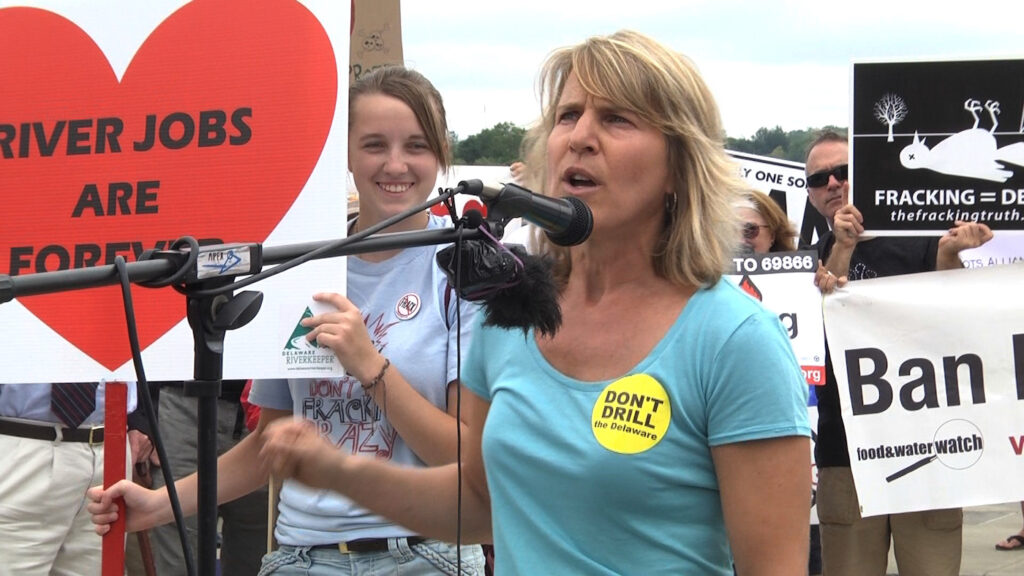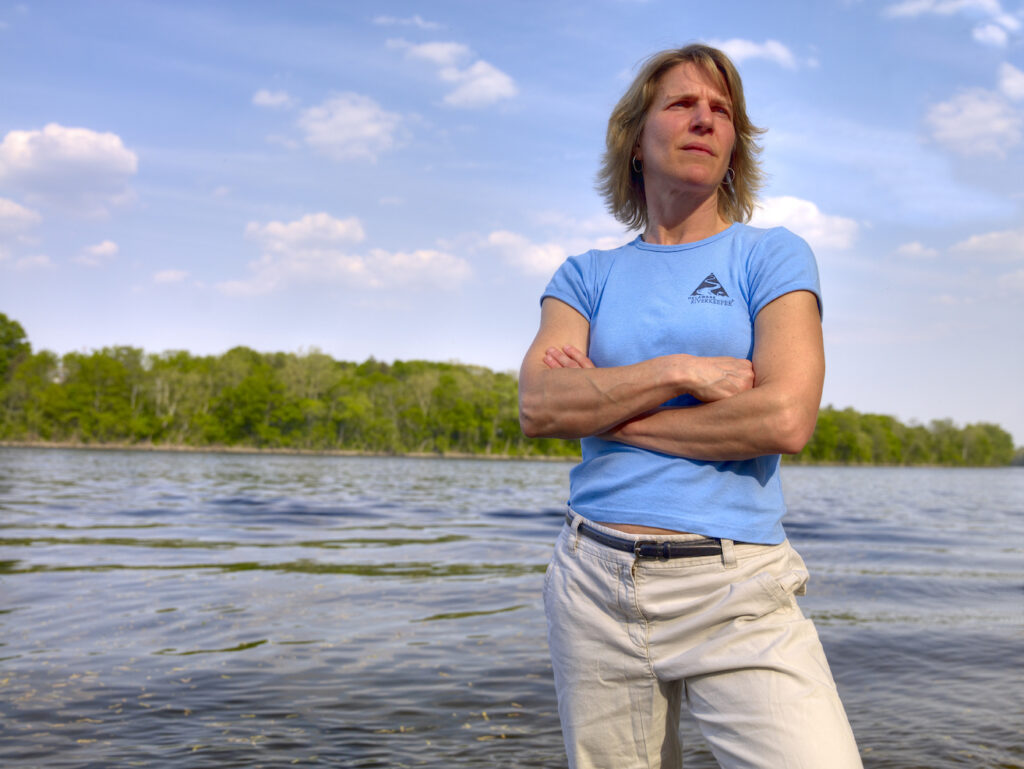Teaching Children about Caring for Our Waters
Maya van Rossum is the Delaware Riverkeeper, the spokesperson for and leader of the Delaware Riverkeeper Network (DRN), a nonprofit environmental organization and vital force in the preservation, protection, and restoration of the Delaware River Watershed.

Maya heads a team of dedicated staff and volunteers who monitor the river throughout the Watershed’s four states: New York, Pennsylvania, New Jersey, and Delaware. They also advocate, educate, and litigate for protection, restoration, and change.
Teaching children to care for our waters is an important part of raising future sustainable leaders.
And having clean water for swimming, kayaking, paddle boarding, or fishing offer plenty of experiences to spend time in nature, which is good for mental health and physical wellbeing.
Maya’s role at the Delaware Riverkeeper Network provides a unique perspective. She’s both an activist and a mom. And we’re delighted to share her perspective with you.
Green Child’s Interview with Maya van Rossum, Delaware Riverkeeper
Maya is also a mother and stepmother to six children. Combined with being a “parent” to the longest undammed river east of the Mississippi, she has plenty to say about the importance of taking care of our waters.
Why should parents raising children today be concerned about the main rivers and watersheds in their communities?
Maya: The values healthy streams and rivers provide to our children are vast and varied. Of course, rivers are a primary source of drinking water. For many communities clean streams means clean water to drink.
But rivers also provide food for many families in the form of fish and shellfish. If we pollute or damage our waterways we harm this critical food supply. Keeping our rivers clean and healthy also means protecting them in a way that reduces flooding. Not only does flooding cause obvious harm to homes and businesses, but for families can mean lost days at school or work, sickness, depression, and a loss of the feeling of safety. These are among the serious reasons we want our kids to care about clean and healthy waterways.
But there are other reasons for kids to care – ways that benefit them today as children. Clean streams and rivers are a wonderful place to play – the joy of playing in a cool, clean stream on a hot summer day surpasses that of playing in a pool. Kids who spend more time in and with nature do better in school – it helps their capacity to learn. A clean and healthy stream or river needs lots of healthy forest, wetlands, and other habitats that can prevent and filter pollution before it damages the water.
Time in a clean stream and the healthy nature that supports it is good for children’s health and enriches their lives. The quality of recreation and fun nature provides for kids and families is unparalleled by organized sports and activities – the different ways to play in nature is unending and doesn’t require money or equipment or paid-for referees or coaching. It just requires time, access, and imagination.
What are you doing to raise awareness and help fix the problem?
Maya: As the Delaware Riverkeeper I focus on protecting the health of our waterways so they are there to support the kids of today and the kids of tomorrow.
I use advocacy, the law, science, and volunteers to prevent pollution before it happens, to hold accountable those that would violate our environmental protection laws. We try to prevent bad projects like flood control dams and support good ones like restoring damaged floodplains.

I spend a lot of time protecting the forests, wetlands, and native habitats that are vital to healthy streams. I work to secure good laws that will require all of us to protect our environment and our waterways for present and future generations.
There are many people who don’t understand how seriously their actions and choices harm the environment. And there are some who don’t care and feel that money and jobs and corporate profits are more important than protecting the air we breathe or water we drink.
I try to help people understand that they can best accomplish all of their goals by ensuring that we as a community best protect our rivers and environments. Whether better jobs, better education, better health, better recreation, more valuable homes and more enjoyable lives, these things are all better served by choices which also protect our present and future environment.
What can parents do to help?
Maya: I don’t think we need to teach kids to care about nature. I think they are born feeling connected and caring about the health of our environment. We see that most obviously in how lovingly children feel for animals – the enthusiasm a passing butterfly brings, the tremendous sadness that is felt when a hurt bird or bunny is found.
Children understand that healthy streams, forests, and habitats are vital to their health lives. As parents all we have to do is support and nurture that care and concern for nature and help direct children to understand how they can help protect and heal nature when they have a chance.
If a child is sad that a bird died hitting a glass window, share in and validate their sorrow but also help them recognize there is a solution – putting up stickers or other materials that will help the bird see and/or avoid the window.
Support opportunities for them to get out and explore in nature – it is wonderful to see a beautiful tiger on the TV, but even more exciting to see a more common deer or bunny rabbit in real life.
Help kids to understand that their yard, their school grounds, every spot not built on in their community is a place for them to create and restore nature. There are many things we can do, large and small, and the most important is to encourage kids to interact with nature and to support the innate care, concern, and connection to nature they are born with.
How old are your children? How do they feel about these issues? Are they active advocates?
Maya: I have a blended family. I have a 16-year-old daughter and a 7-year-old son. They’re both solid advocates for the environment in big ways and small. When my daughter was in elementary school, under her own initiative, direction and inertia, she convinced her school to switch to only free range eggs in the school cafeteria. I was quite amazed by her creativity and fortitude – all I really did was encourage her when she felt frustrated at times, but it all came from her.
As a 16-year-old she enjoys joining me at rallies, she often goes on line and finds issues she cares about and writes letters to politicians, and has even participated in lobby days where she goes with a group of others to talk with legislators about environmental issues.
My 7-year-old advocates for nature by sharing it with his friends, encouraging them to dig with him in the dirt for worms or to chase after and examine birds or butterflies, or to play with him in the creek. And when an animal is harmed he is the first to want us to help. When we are at the shop and turn down the need for a bag (using our cloth one instead) he talks about why it was good not to take the bag, and talks with me about why our garden filled with plants is so much better for the river than a big rolling lawn we may be driving by in the car.
I also have 4 stepchildren who when they first came into my life I think thought of me as a bit of a freak (they were 8 to 16 at the time). But as they have gotten to know me, for instance coming to see the beautiful garden we have created out of lawn using native plants, and have begun to learn about nature through their own experiences and education over time, my quirkiness has become kind of cool.
And so my youngest step son chose to become a vegetarian at 10 and my eldest step daughter is very engaged in politics on social issues (not the environment but other important matters like voting rights and access to higher education). I like to think I had a supportive hand in both.
